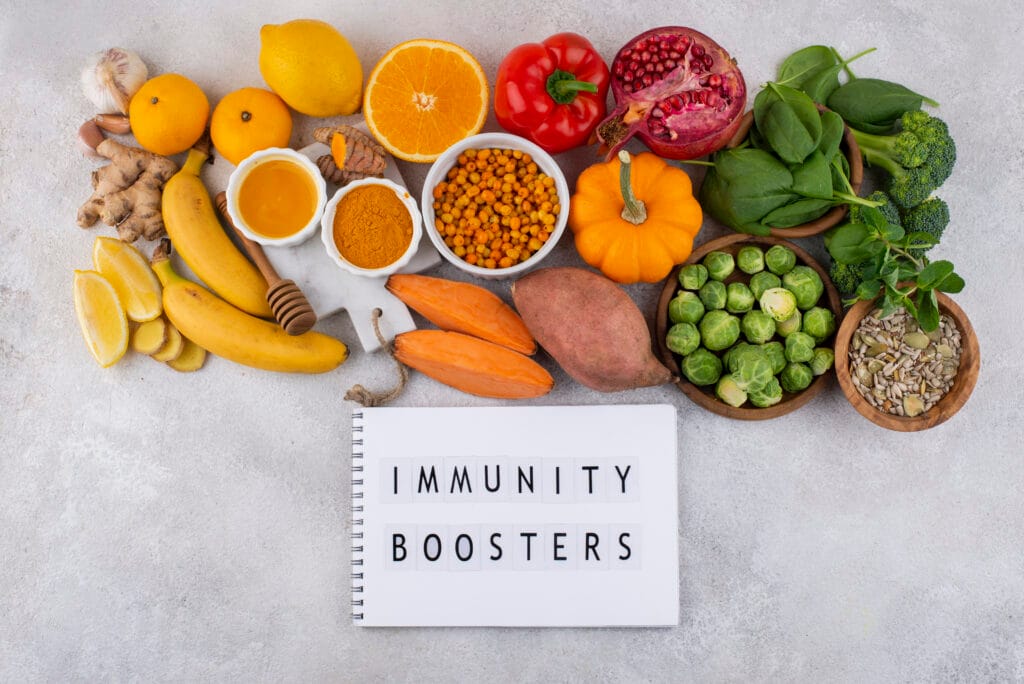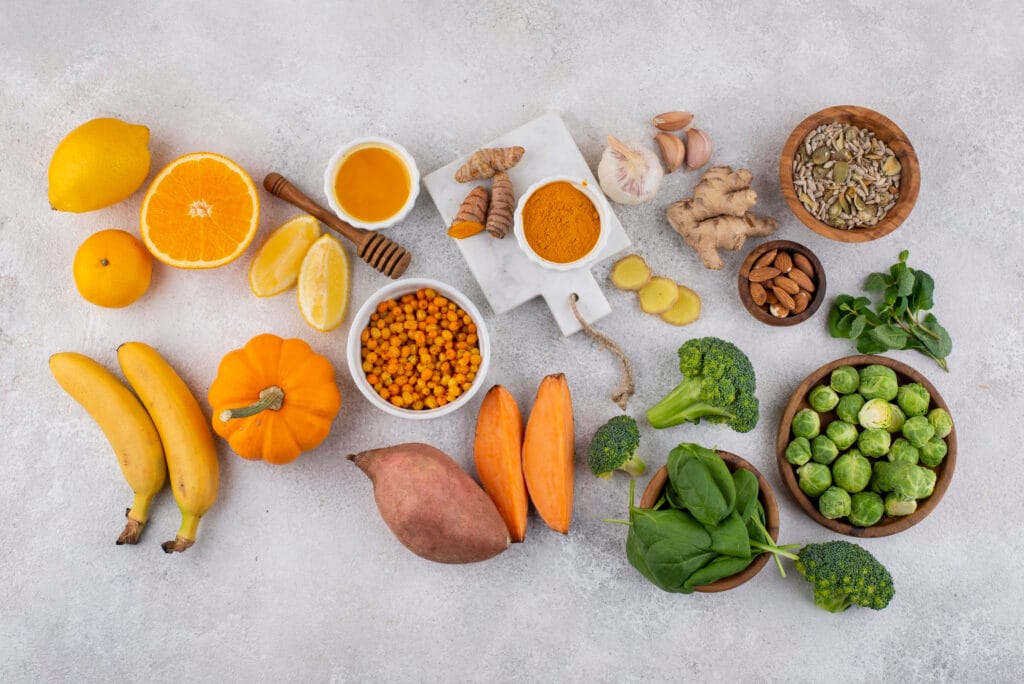Anti-Inflammatory Diet: Benefits, Foods, and Meal Plans
Anti-Inflammatory Diet
Modern life can make it hard to notice inflammation quietly harming our bodies. Chronic inflammation is a big problem in the US, linked to heart disease, diabetes, and some cancers. But, eating the right foods can help fight this silent threat.
This guide will show you how an anti-inflammatory diet works. We’ll look at the science, the best foods, and meal plans to get you started. It’s for anyone wanting to improve their health or fight specific conditions.

Let’s explore how an anti-inflammatory diet can change your life. It can boost your energy, reduce pain, and make you feel alive again. Embark on a journey with us toward a healthier, happier you.
Table of Contents
Understanding the Anti-Inflammatory Diet
What is an Anti-Inflammatory Diet?
The anti-inflammatory diet closely resembles the Mediterranean diet and is recognized as one of the healthiest eating patterns. Both diets focus on lots of antioxidant-rich produce, healthy fats, and seafood. They also limit refined grains, added sugars, and processed foods.
Other diets like the DASH, Okinawan, Nordic, and Mexican diets also aim to reduce inflammation. They all emphasize eating biodiverse, fresh, seasonal, and locally-sourced foods. This consists of vegetables, fruits, whole grains, and lean protein sources.
Benefits of an Anti-Inflammatory Diet

An anti-inflammatory diet offers many health benefits. It focuses on foods that fight inflammation, like fruits, vegetables, whole grains, and healthy fats. This can lower the risk of diseases like diabetes, heart disease, and some cancers.
It also improves overall health and boosts energy levels. By eating right, you can feel better and live a healthier life.
| Benefits of an Anti-Inflammatory Diet | Impact |
| Reduces inflammation | Lowers risk of chronic diseases |
| Improves overall health | Boosts energy levels |
| Prevents chronic diseases | Enhances quality of life |
Key Foods for an Anti-Inflammatory Diet
An anti-inflammatory diet focuses on foods rich in nutrients. These foods help lower body inflammation. They include:
- Fruits: Berries, cherries, pomegranates, plums
- Vegetables: Dark leafy greens, broccoli, cauliflower, brussels sprouts, beets
- Whole Grains: Quinoa, whole-wheat bread, brown rice
- Beneficial Fats: Avocado, olive oil, seeds, and nuts
- Lean Proteins: Fish, especially salmon, as well as legumes
- Herbs and Spices: Garlic, turmeric, ginger
These foods are rich in antioxidants and omega-3 fatty acids. They help fight chronic inflammation. Eating a diet rich in these foods can lower the risk of diseases like heart disease, cancer, and diabetes.
It’s key to limit or avoid processed meats, unhealthy fats, refined carbs, sugary drinks, and red meat. They can cause inflammation and increase health risks.

Adding these anti-inflammatory foods to your diet can boost your health and well-being.
21 Day Anti-Inflammatory Diet Meal Plan
Week 1 Meal Plan and Prep Tips
To make this 21-day anti-inflammatory diet plan easier, we’ll break it down week by week. We’ll also include meal prep tips at the start of each week. For Week 1, prepare Chopped Veggie Grain Bowls with Turmeric Dressing for lunch on Days 2 through 5.
The meal plan for Week 1 includes a variety of anti-inflammatory foods. These include berries, leafy greens, nuts, and lean proteins. Meal prep can make the week easier, so we encourage following the tips provided.
Week 2 Meal Plan and Prep Tips
For Week 2, make three servings of Blueberry Almond Chia Pudding for breakfast on Days 9 through 11. Also, prepare Sweet Potato, Kale & Chicken Salad with Peanut Dressing for lunch on Days 9 through 12.
The Week 2 meal plan continues to focus on anti-inflammatory foods. These include berries, leafy greens, nuts, and healthy fats. Meal prepping these recipes ahead of time can make the week’s meals a breeze.
Week 3 Meal Plan and Prep Tips
For Week 3, save 2 servings of the Vegan Lentil Soup for lunch on Days 6 and 7. The Week 3 meal plan emphasizes anti-inflammatory foods like legumes, citrus fruits, and leafy greens.
Prepping the lentil soup ahead of time can make lunches for the end of the week simple and nourishing.

Science Behind the Anti-Inflammatory Diet
How Diet Affects Inflammation
Diet can greatly affect how much inflammation is in our bodies. An anti-inflammatory diet is full of fruits, veggies, whole grains, and healthy fats. It helps lower the levels of inflammatory markers like cytokines and prostaglandin E2.
On the other hand, a pro-inflammatory diet includes processed meats, refined carbs, and unhealthy fats. This diet can start the inflammatory process and raise the levels of inflammatory markers. Chronic inflammation is connected to many long-term diseases, making the anti-inflammatory diet key for prevention and management.
Comparing Anti-Inflammatory and Pro-Inflammatory Diets
Anti-inflammatory diets, such as the Mediterranean or DASH diet, are rich in whole foods. They are high in fruits, veggies, whole grains, healthy fats, and lean proteins. These diets help reduce inflammation.
In contrast, pro-inflammatory diets, like the Western diet, are full of processed meats, refined carbs, added sugars, and unhealthy fats. Eating a pro-inflammatory diet can increase inflammatory markers and lead to chronic diseases. Knowing the differences between these diets helps us choose the anti-inflammatory path for better health.
Conclusion
Adding an anti-inflammatory diet to your life can bring many health perks. It focuses on foods full of nutrients and anti-inflammatory compounds. This helps lower chronic inflammation, which is tied to many diseases.
This diet is like the Mediterranean diet, with a focus on fruits, veggies, whole grains, healthy fats, and lean proteins. It’s a wise choice for a healthier lifestyle.
Switching to this diet, along with regular exercise and managing stress, boosts health and happiness. It’s not just about fighting inflammation. It also helps with weight, boosts the immune system, and improves digestion.
For office workers, an anti-inflammatory diet can make them more focused, productive, and full of energy. Eating well is a key to staying healthy and preventing diseases. It’s a step towards a better, more vibrant life.
FAQ
What is an anti-inflammatory diet?
An anti-inflammatory diet is all about eating foods that are good for you. It includes healthy fats, complex carbs, legumes, and lots of fruits and veggies. The goal is to fight chronic inflammation, which is linked to many diseases.
What are the benefits of an anti-inflammatory diet?
Eating foods that fight inflammation can lower your risk of diseases like diabetes and heart disease. It can also boost your health and energy.
What foods are generally part of an anti-inflammatory diet?
Key foods include fruits, vegetables, whole grains, and lean proteins. Healthy fats and spices like garlic and ginger are also important.
How does the anti-inflammatory diet compare to other healthy eating patterns?
The anti-inflammatory diet resembles the Mediterranean diet. Both are known for their health benefits. They focus on antioxidants, healthy fats, and seafood, while avoiding processed foods.
How can an anti-inflammatory diet help reduce inflammation in the body?
Changing what you eat can really affect your body’s inflammation levels. Eating more fruits, veggies, and healthy fats can lower inflammation. On the other hand, foods high in processed meats and unhealthy fats can increase it.
What is the difference between an anti-inflammatory diet and a pro-inflammatory diet?
Anti-inflammatory diets, like the Mediterranean or DASH diet, focus on whole, nutrient-rich foods. Pro-inflammatory diets, like the Western diet, are full of processed meats and unhealthy fats. These can lead to chronic diseases.




